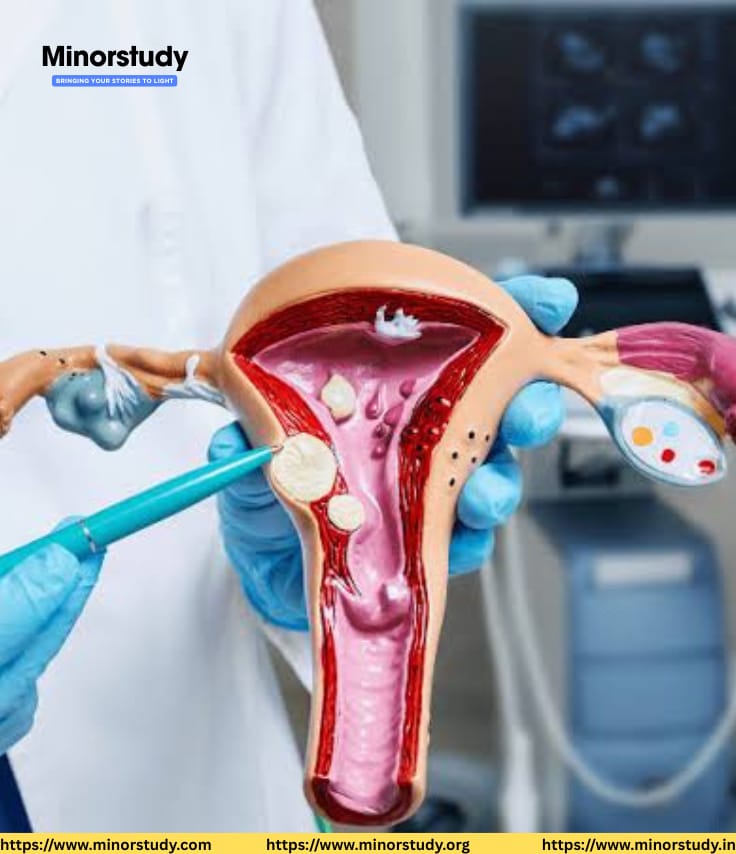👩⚕️ Introduction: Understanding Gynecology
Gynecology is the branch of medical science that deals with the health of the female reproductive system, including the uterus, ovaries, fallopian tubes, and breasts. It covers a wide spectrum—from menstruation to menopause, from prenatal care to infertility, and from infections to cancers.
- 👩⚕️ Introduction: Understanding Gynecology
- 🕰️ History of Gynecology: From Ancient Myths to Modern Medicine
- 📅 Timeline of Major Gynecology Milestones
- 🔍 Fascinating Facts About Gynecology
- ❓ FAQs About Gynecology
- 🎯 Significance of Gynecology in Life and Society
- 1. Early Detection Saves Lives
- 2. Empowering Women
- 3. Promoting Maternal Health
- 4. Improving Mental Wellbeing
- 5. Championing Reproductive Rights
- 6. Normalizing Conversations Around Women’s Health
- 🩺 Observance and Global Recognition
- 💖 Wishing All Gynecologists and Women a Healthy Life
- 📌 Important Points at a Glance
- 🏠 Impact on Daily Life
- 💬 Human Side of Gynecology
- 🧭 Conclusion: Gynecology Is a Lifelong Companion for Women’s Health
In a world where women’s health was once shrouded in secrecy, gynecology has emerged as a powerful tool of empowerment, education, and wellbeing.
🕰️ History of Gynecology: From Ancient Myths to Modern Medicine
The journey of gynecology spans thousands of years, filled with breakthroughs, taboos, and triumphs:
Ancient Egypt (c. 1800 BCE): The Kahun Gynaecological Papyrus is the oldest known medical text focused entirely on women’s health.
Ancient Greece: Hippocrates and Galen began studying reproductive anatomy and childbirth.
Medieval Period: Women’s health became cloaked in superstition; midwives played key roles.
18th–19th Century: Gynecology emerged as a medical specialty. The invention of the speculum and the rise of obstetrics marked significant progress.
20th Century: Introduction of contraceptives, pap smears, and ultrasound revolutionized the field.
21st Century: Gynecology expanded to include minimally invasive surgery, reproductive rights, and personalized care.
📅 Timeline of Major Gynecology Milestones
| Year | Milestone |
|---|---|
| 1800 BCE | Kahun Papyrus written in Egypt |
| 1846 | Anesthesia first used in gynecological surgery |
| 1928 | Pap smear introduced by Dr. George Papanicolaou |
| 1960 | Birth control pill approved by FDA |
| 1980s | In-vitro fertilization (IVF) becomes widely available |
| 1990s | Laparoscopic (keyhole) gynecological surgeries introduced |
| 2020s | AI-assisted gynecology and telemedicine rise |
🔍 Fascinating Facts About Gynecology
The word gynecology comes from the Greek “gynē” meaning woman, and “logos” meaning study.
Pap smears can prevent up to 80% of cervical cancers if done regularly.
Menstrual health is a UN-recognized human right.
Gynecologists often treat conditions like PCOS, endometriosis, and fibroids, which affect millions.
The first gynecology textbook was written in the 16th century.
❓ FAQs About Gynecology
Q1. Is gynecology only for pregnant women?
A: No. Gynecology deals with all aspects of female reproductive health, regardless of age or pregnancy status.
Q2. At what age should a girl first visit a gynecologist?
A: Ideally between 13-15 years old, or when issues like irregular periods, pain, or questions arise.
Q3. What is the difference between gynecology and obstetrics?
A: Gynecology focuses on reproductive health outside of pregnancy. Obstetrics specializes in pregnancy and childbirth.
Q4. Are gynecological checkups painful?
A: Not usually. Some tests may be slightly uncomfortable but are quick, safe, and crucial for early diagnosis.
Q5. Can men see a gynecologist?
A: Gynecologists specialize in female anatomy, but transgender or intersex individuals may also need gynecological care.
🎯 Significance of Gynecology in Life and Society
1. Early Detection Saves Lives
Regular visits to a gynecologist can detect cervical, ovarian, and breast cancers in their early stages—drastically improving survival rates.
2. Empowering Women
Understanding menstrual cycles, contraception, and fertility helps women take control of their health and life choices.
3. Promoting Maternal Health
Gynecology ensures safe pregnancies, healthy deliveries, and reduces maternal mortality—a global health priority.
4. Improving Mental Wellbeing
Hormonal disorders like PCOS or menopause can affect mental health. Gynecology addresses physical and emotional needs together.
5. Championing Reproductive Rights
Gynecology plays a role in advocating for access to contraception, abortion services, and informed choices—key for gender equality.
6. Normalizing Conversations Around Women’s Health
The field has helped remove stigma surrounding menstruation, sexual health, and fertility.
🩺 Observance and Global Recognition
📅 International Days Related to Gynecology:
International Day of Action for Women’s Health – May 28
World Menstrual Hygiene Day – May 28
Cervical Cancer Awareness Month – January
Breast Cancer Awareness Month – October
These observances promote awareness, education, and advocacy for women’s health across cultures and age groups.
💖 Wishing All Gynecologists and Women a Healthy Life
🌸 “To the doctors who help women bloom in health and dignity—Happy Gynecologists’ Day! Your work goes beyond medicine; it transforms lives.”
🌼 “To every woman taking charge of her reproductive health—more power to you! Here’s to fearless check-ups and informed choices.”
📌 Important Points at a Glance
🧠 Gynecology promotes preventive health for women at all stages of life.
⚕️ Detects cancers, hormonal disorders, infections, and more.
💊 Vital for safe contraception, fertility treatments, and menstrual care.
👩🔬 Has evolved from taboo to a scientific and empowering discipline.
🌐 Encourages gender-sensitive policies and healthcare access.
🏠 Impact on Daily Life
Everyday life is easier and safer because of gynecology:
Women can plan families thanks to reproductive options.
Menstrual disorders can be managed with expert care.
Teenagers get guidance on puberty, body changes, and hygiene.
Middle-aged women find support during menopause.
Elderly women receive care for osteoporosis and urogenital health.
Without gynecology, women would continue to suffer in silence from conditions that are preventable or manageable.
💬 Human Side of Gynecology
Gynecology isn’t just about diagnoses—it’s about trust, education, and empowerment. It creates a safe space where women can share concerns, ask questions, and be treated with dignity.
In many societies, women are discouraged from talking about menstruation or sexual health. Gynecologists break these taboos, making healthcare inclusive and accessible.
🧭 Conclusion: Gynecology Is a Lifelong Companion for Women’s Health
Gynecology is not just a medical specialty—it’s a life-saving, confidence-building, and future-shaping force in every woman’s life.
It empowers women to live healthy, informed lives. It supports families, builds stronger societies, and ensures that no woman suffers in silence due to ignorance or neglect.
As we move toward universal health coverage and gender equality, investing in gynecological care is not a choice—it’s a necessity.








